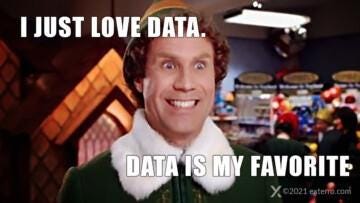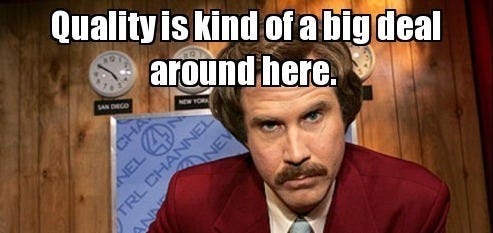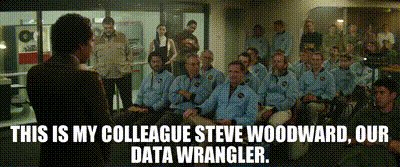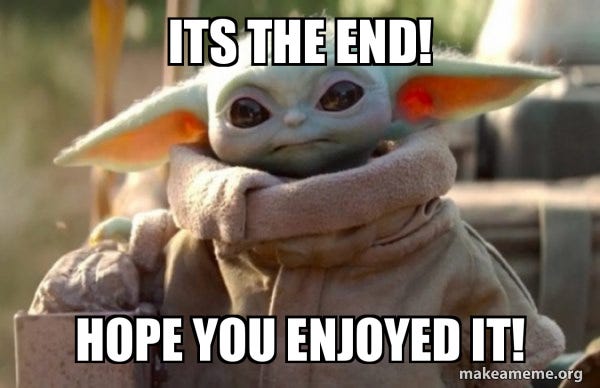Issue 007 - Meet Hasan Geren
Surprisingly, the issue wasn’t with the features but with the app’s sign-in/sign-up process where nearly 80% of users were abandoning the app at this stage.
Meet Hasan Geren, a dedicated and innovative Data Engineer at Hypera AI, whose journey into data is inspiring and diverse. With a foundation in Industrial Engineering and a pivotal internship in database management, Hasan transitioned into the world of data through a master’s degree in Data Mining and later found his calling in Data Engineering.
Now pursuing a PhD, Hasan combines academic rigor with practical expertise, continuously pushing the boundaries of what data engineering can achieve.
Hasan’s career is marked by his ability to blend technical precision with creative problem-solving, delivering impactful data-driven solutions. From revamping outdated data pipelines to uncovering surprising user behavior insights, he exemplifies the transformative power of data.
Q1: What inspired you to pursue a career in data, and how has your motivation evolved over time?
A: My journey into the data field has been a winding road. I began as an industrial engineer, with early roles in budget, order, and logistics planning. However, a four-week internship in database management during my undergraduate studies ignited my interest in data. This led me to pursue a master’s degree in Data Mining, which eventually transitioned into my first role as a Data Scientist.
Over time, my passion for data deepened, and I discovered that Data Engineering aligned perfectly with my skills and interests. Now, as a Data Engineer pursuing a PhD, I remain committed to continuous learning and growth, embracing every opportunity to expand my expertise in the field.
Q2: Can you share a pivotal moment in your career that significantly shaped your approach to data?
A: One of the most pivotal moments in my career occurred during my first project as a Data Scientist. Collaborating with Academic Advisors and Product Experts, we worked to create training data for an AI model. This project revealed the complexities of building meaningful, high-quality, and unbiased datasets, a challenge far more intricate than anything I had encountered in academia.
When faced with limited data, we pivoted to an unsupervised approach to solve the problem. This experience highlighted the importance of adaptability, resourcefulness, and the realities of working with imperfect data. It fundamentally shaped my approach to data, emphasizing the need to remain flexible while striving for practical, impactful solutions.
Q3: How do you balance the technical aspects of your role with the need for creative problem-solving?
A: Balancing technical execution with creative problem-solving involves asking key questions for every task:
What problem are we trying to solve?
What are the critical aspects that need addressing?
Are there elements that can be deprioritized or approached differently?
What are the constraints in terms of time and budget?
By defining these parameters, I can allocate resources effectively, whether working under tight constraints or in a more flexible environment. This clarity helps me deliver technically sound solutions while also fostering creativity to address challenges innovatively.
Q4: Can you discuss a project where data insights led to unexpected outcomes or revelations?
A: One standout project involved fixing an outdated data pipeline used by business analysts to track mobile app user events. While the team focused on adding features and enhancing the UI, I discovered that the pipeline was malfunctioning, resulting in analysts using incorrect data.
Surprisingly, the issue wasn’t with the features but with the app’s sign-in/sign-up process where nearly 80% of users were abandoning the app at this stage. This revelation shifted the team’s focus and underscored the critical role of data accuracy in uncovering actionable user behavior insights.
Q5: How do you foster a culture of data-driven decision-making within your team or organization?
A: I encourage a culture of data-driven decision-making by promoting a “why-first” mindset. I advocate for basing decisions on solid data rather than intuition and ensure transparency by sharing the reasoning and data behind my own opinions.
I also prioritize creating a standard for analytical thinking within the team, fostering a mindset where data serves as the foundation for all decisions. This approach builds trust in data and strengthens the overall decision-making process.
Q6: What role does mentorship play in your career, and how have mentors influenced your journey?
A: Mentorship has been instrumental in my career. My professors taught me the value of rigorous research and encouraged me to explore Data Mining, despite my background in Industrial Engineering. This guidance set me on the path to becoming a Data Engineer.
In my professional career, managers have generously shared their time and insights, helping me navigate challenges and refine my technical and strategic thinking. Their support has inspired me to pay it forward by mentoring others and contributing to the development of aspiring data professionals.
Q7: Can you reflect on a setback in your data career and what you learned from it?
A: Early in my career, I focused too much on over-engineering solutions while neglecting foundational elements. For example, while working on a data infrastructure project, I built an advanced, automated data pipeline but overlooked the need for core quality checks.
The inconsistencies in the core data forced me to backtrack and simplify the system. This experience taught me that innovation and automation are only valuable if built on a solid foundation of quality and consistency.
Q8: What are some key skills that are often overlooked in your field of data?
A: Soft skills, like communication and presentation, are often overlooked in data-related roles. While technical skills are crucial, the ability to clearly explain insights, simplify technical concepts, and effectively present findings to stakeholders is equally important.
Data wrangling is another underappreciated skill. Cleaning, handling missing values, identifying outliers, and ensuring consistency between datasets are foundational to any data project. Without high-quality data, even the most advanced models will yield inaccurate results.
Q9: What do you love outside of data?
A: Outside of data, I’m passionate about metal music and attending live concerts. I also enjoy playing chess daily to keep my mind sharp and competitive.
Additionally, I love video games, learning card tricks, and reading about philosophy—hobbies that fuel both relaxation and creativity.
Q10: What resources (books, courses, tools) do you recommend for people to level up their skills?
A:
Fundamentals of Data Engineering by Joe Reis and Matt Housley: A comprehensive guide to data engineering principles.
T-SQL Fundamentals by Itzik Ben-Gan: A fantastic resource for deepening SQL knowledge.
Data Modeling Essentials by Graeme C. Simsion: A classic resource for mastering data modeling techniques.
Key Takeaways:
Foundations Matter: Hasan emphasizes the importance of building data solutions on a solid foundation of quality and consistency. Innovation is only effective when supported by robust core data practices.
Adaptability is Key: Hasan’s ability to pivot and adapt, as seen in projects involving limited data or unexpected challenges, highlights the value of flexibility in problem-solving.
Communication Skills are Crucial: Beyond technical expertise, Hasan stresses the importance of effectively communicating data insights to stakeholders, ensuring technical concepts are translated into actionable strategies.
Data Accuracy is Non-Negotiable: Hasan’s experience fixing faulty data pipelines underscores the critical role of data accuracy in understanding user behavior and making informed decisions.
Mentorship and Growth: Guided by influential mentors, Hasan has cultivated a passion for giving back by mentoring others and sharing knowledge, contributing to the development of the data community.
To connect with Hassan and learn more about his work, feel free to reach out to him on LinkedIn at Hasan Geren.
Best,
Ayoade Adegbite
Creator of Behind the Data












Thanks for sharing, again a very well-written post 😊